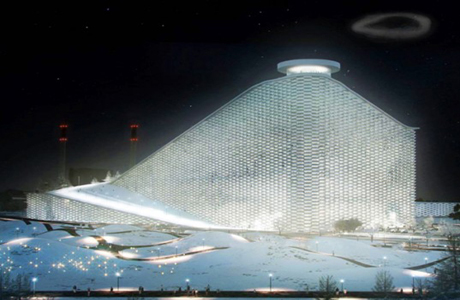Hedonistic Sustainability
Hedonistic sustainability. In a society where the never-ending onslaught of buzzwords, catchphrase and ‘hot topics’ can become a genuine threat to one’s sanity, you could almost be forgiven for dismissing this concept as yet another empty marketing gimmick. However, grounding itself in the basic concept that pleasure is the only intrinsic focus for going green, hedonistic sustainability represents what very well could be the start of the next holistic design paradigm.
Danish architect Bjarke Ingels, founding partner of Bjarke Ingels Group (BIG) and rated as ‘one of the 100 most creative people in business’ by Fast Company, is the man behind the motion. The current discussion about sustainability, he argues, leaves a somewhat bitter taste in one’s mouth as it’s always perceived as a downgrade from our current comfortable lifestyles. Our fundamental resistance to sustainability is that we are yet to really be presented with sustainable options that offer truly comparative alternatives.
But what if our thinking about sustainability is fundamentally flawed? What if we could actually have it all, doing what attains both pleasure for ourselves whilst reaping benefits for the environment?
Defined as “sustainability that improves the quality of life and human enjoyment”, hedonistic sustainability is touted as the “latest and most exciting evolution in the green movement”. It challenges this misconception that sustainability means sacrifice. Copenhagen’s Waste-to-Energy plant designed by Ingels himself is a classic example of such hedonistic sustainability – turning the outside of a waste treatment center into a ski slope using a recycled synthetic granular that upends the convention of the energy intensive indoor ski resort.
Green walls are a clear example that this wondrous intersection between hedonism and sustainability actually exists. Seeing an elaborate garden cascading down the side of a building really does have the power to inspire awe in the mind of the beholder, never mind the harmful air pollutants it’s removing whilst simultaneously reducing that nasty urban heat island effect. Simply envisage a city that could be likened more to an actual jungle than a concrete one, and now you begin to understand Ingel’s concept that sustainable living really can be more fun than normal life.
Our global environmental situation is becoming increasingly precarious, that’s a reality. With the need for sustainable practises not only acknowledged but demanded, the concept of hedonistic sustainability offers new hope that going green is not synonymous with depravation.
Suggested Viewing:
Bjarke Ingels discusses Hedonisitc Sustainability at TEDxEast
By Jericho Cleary
NATURAL HABITATS


